Mexico: Love at second sight
प्रकाशित: 21.10.2023
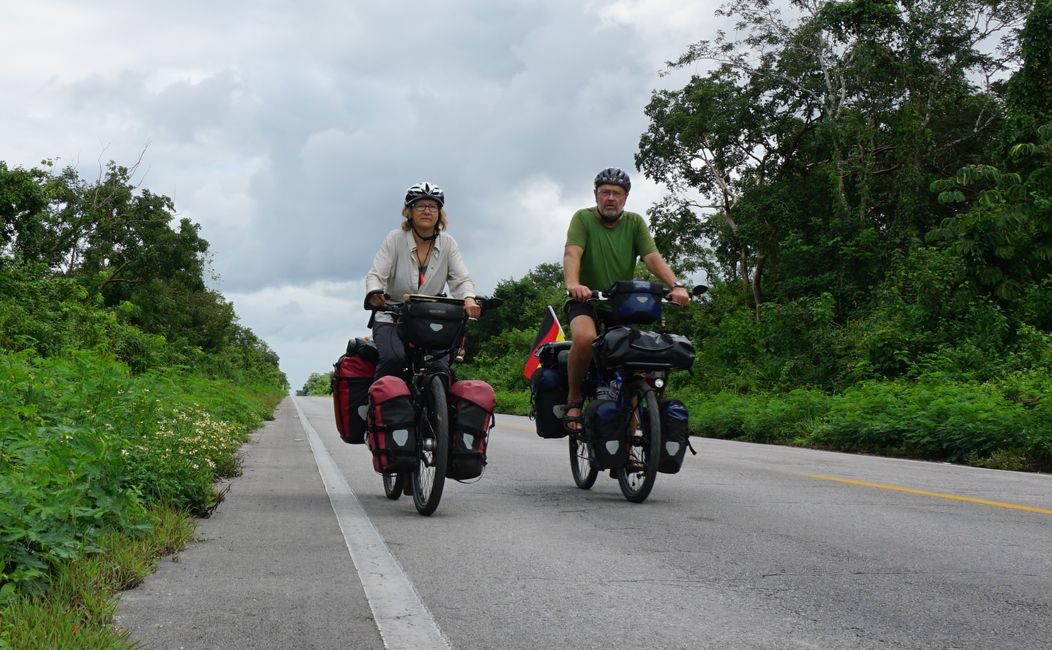
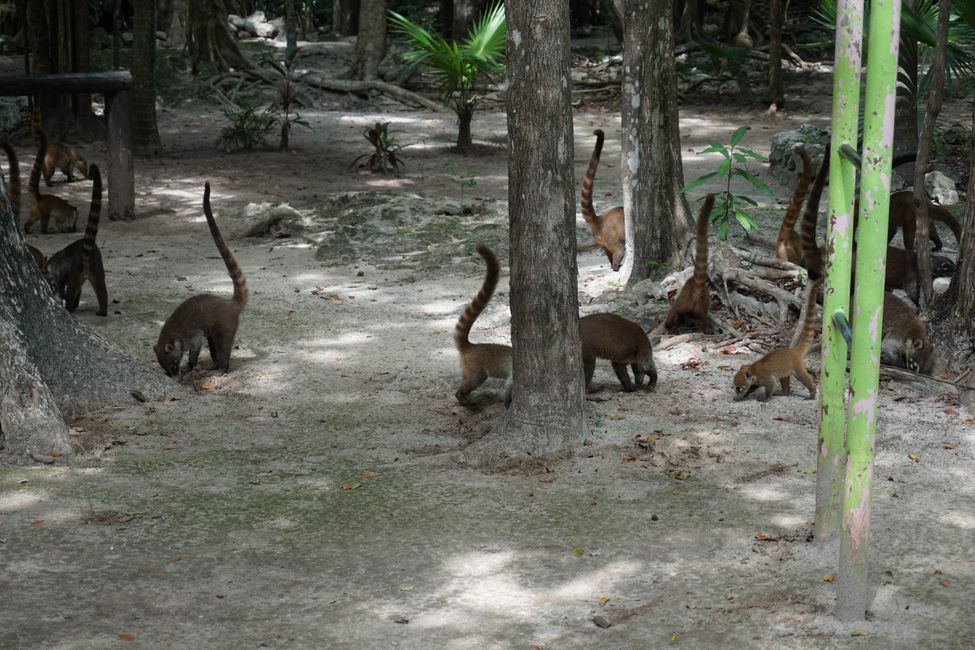
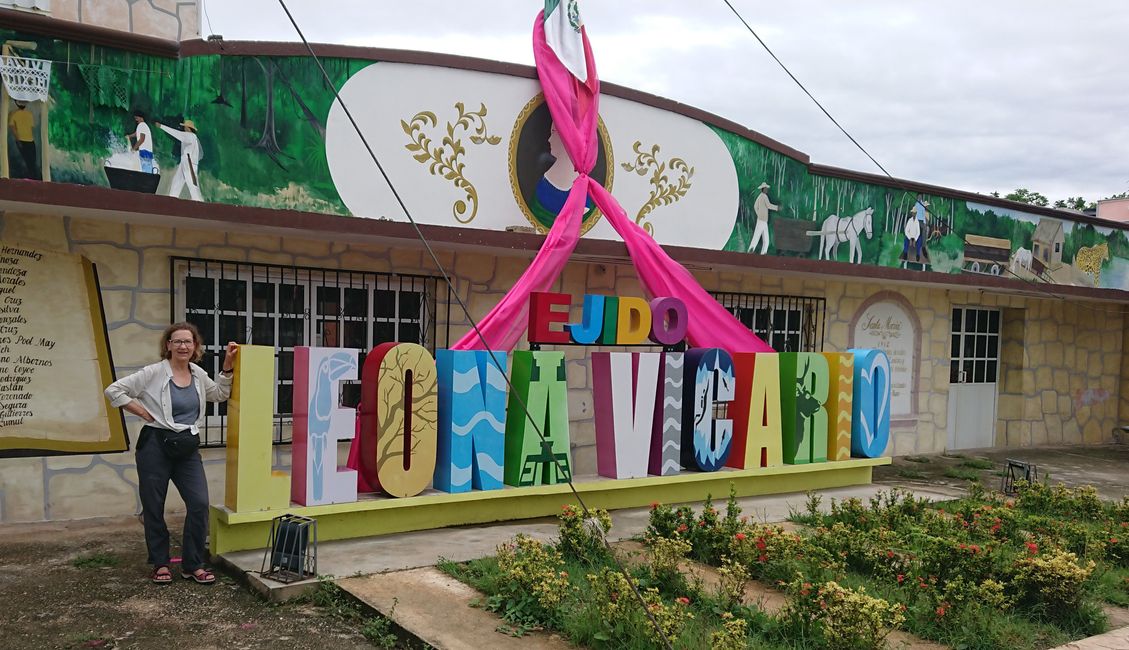
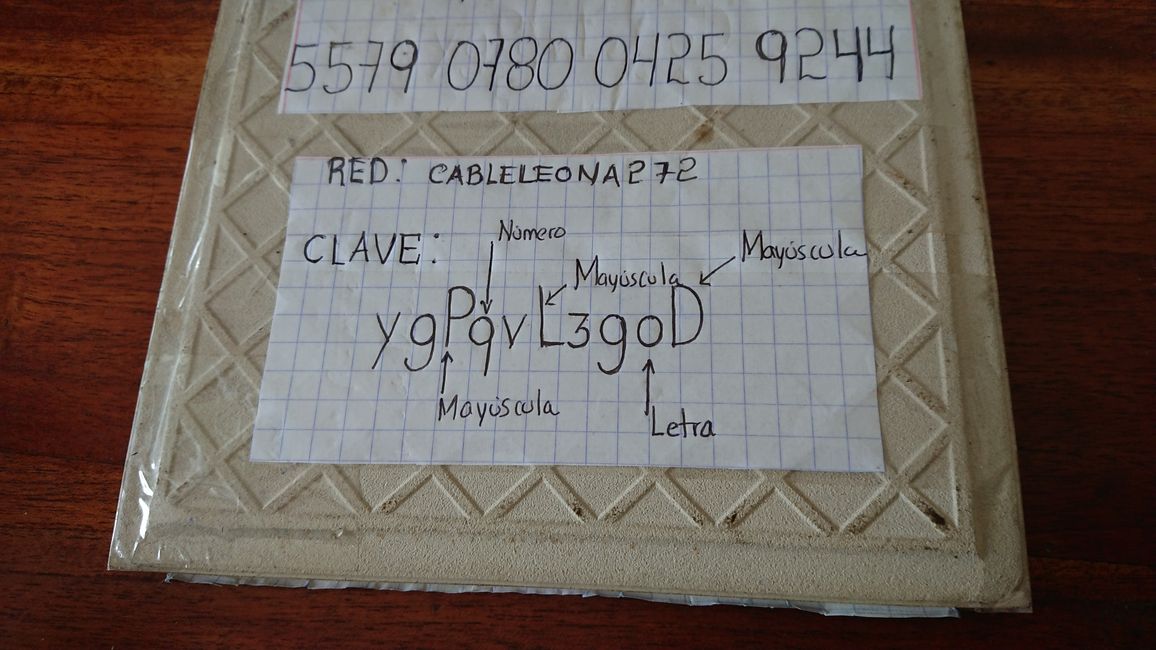
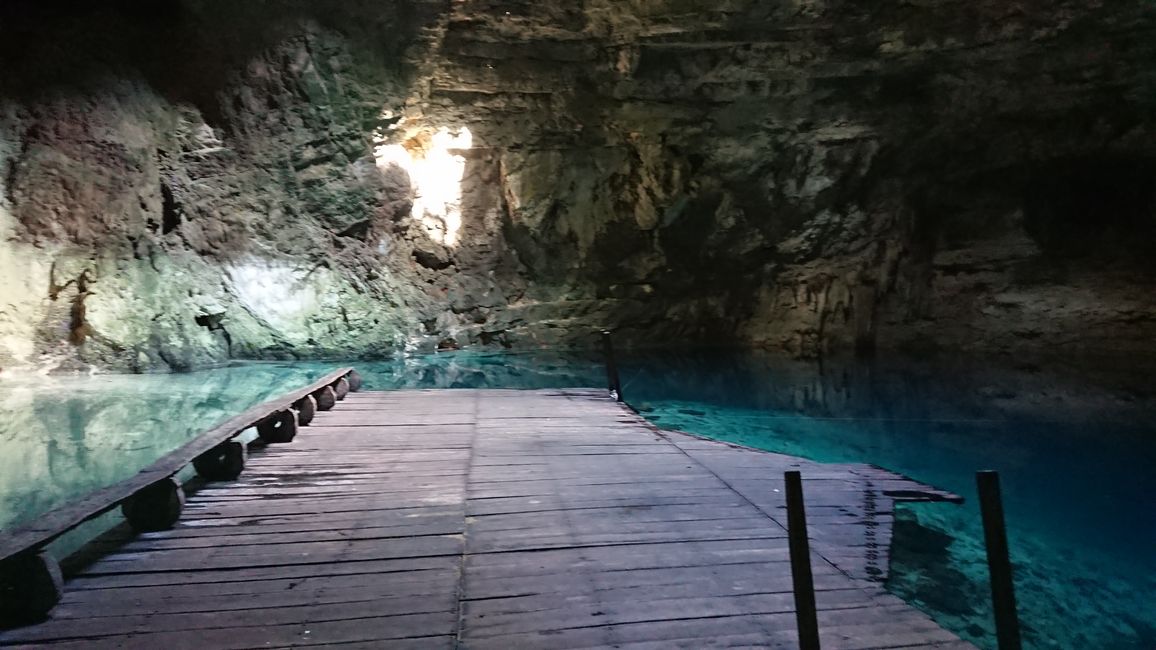
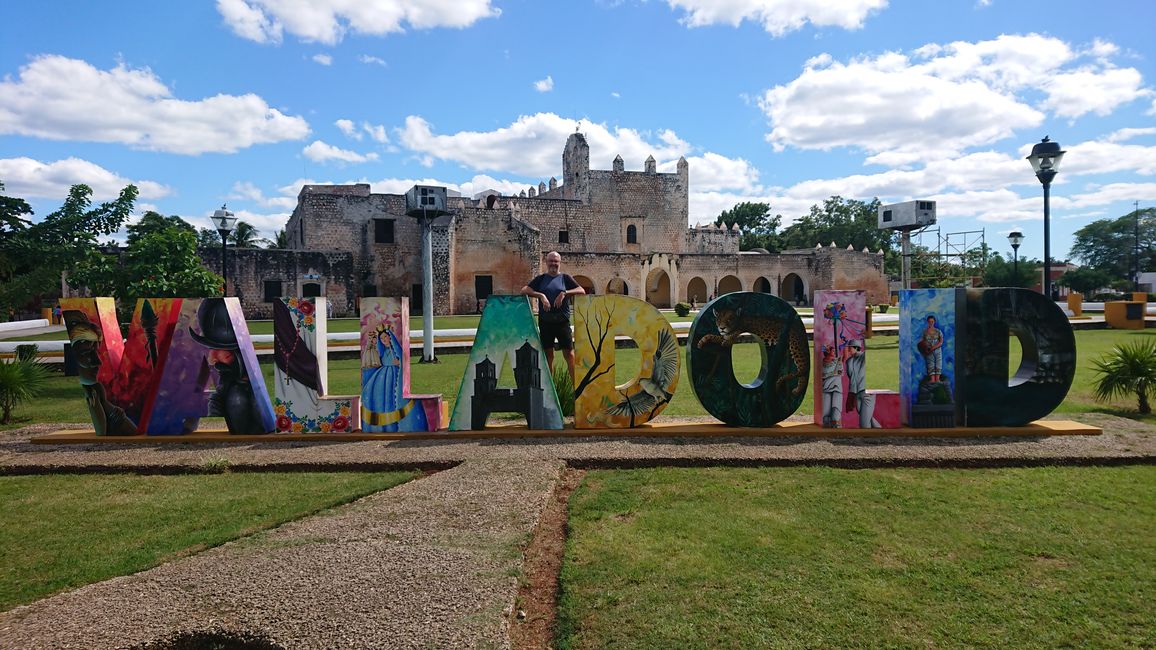
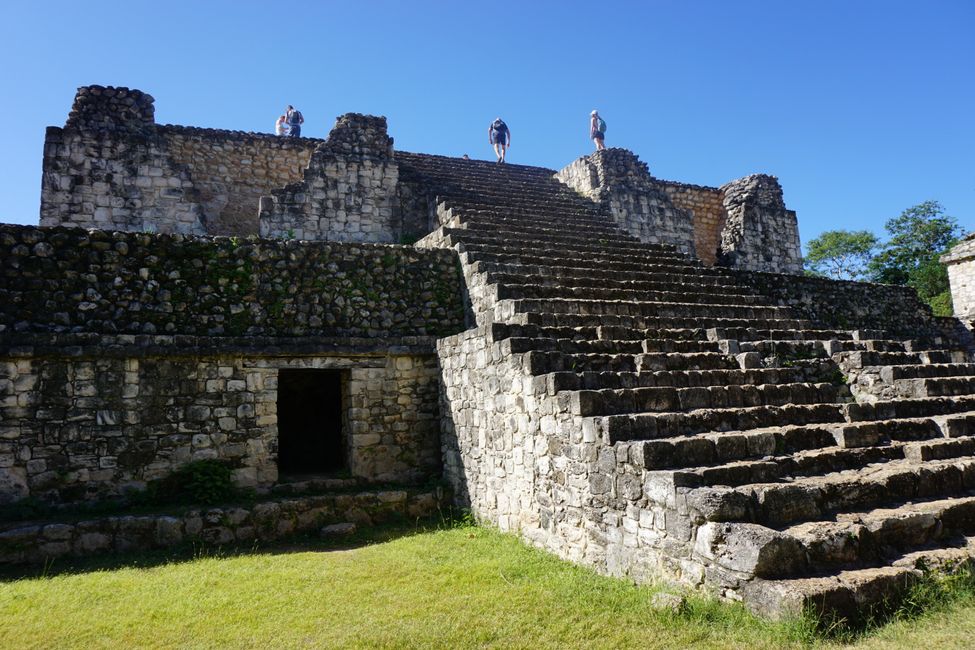
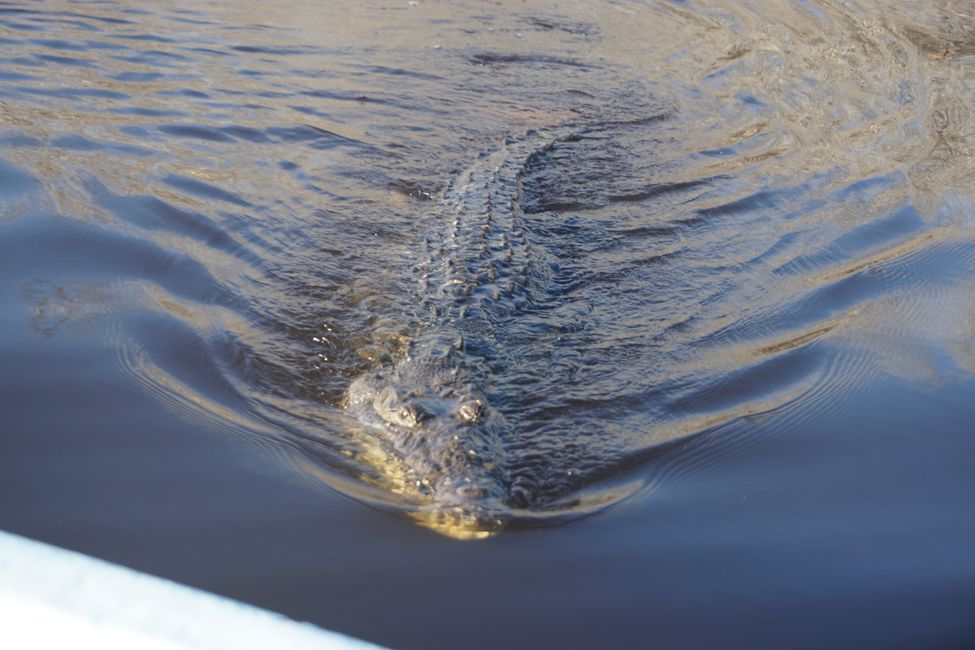
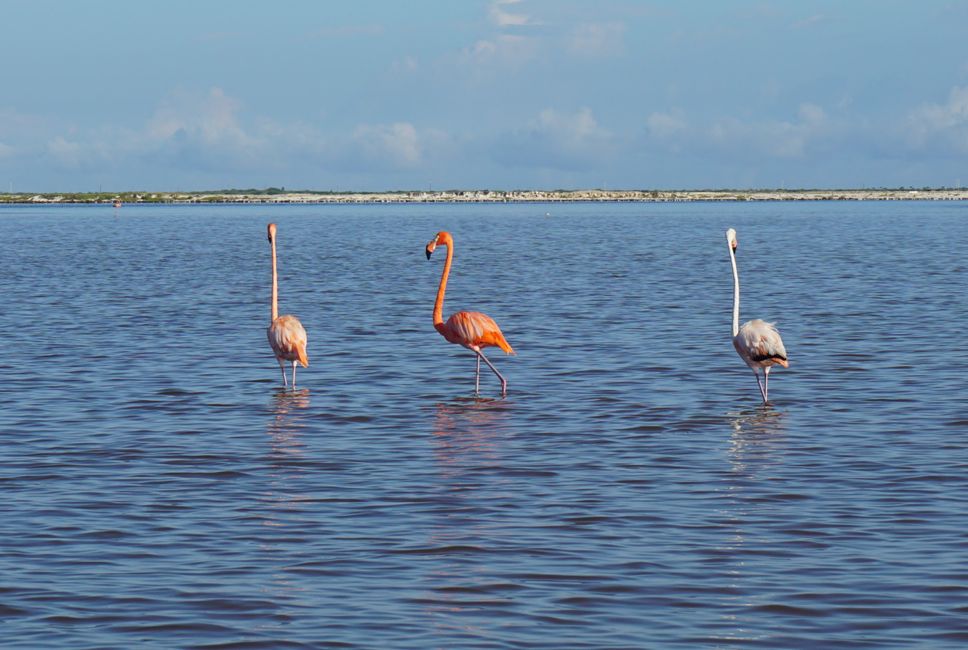
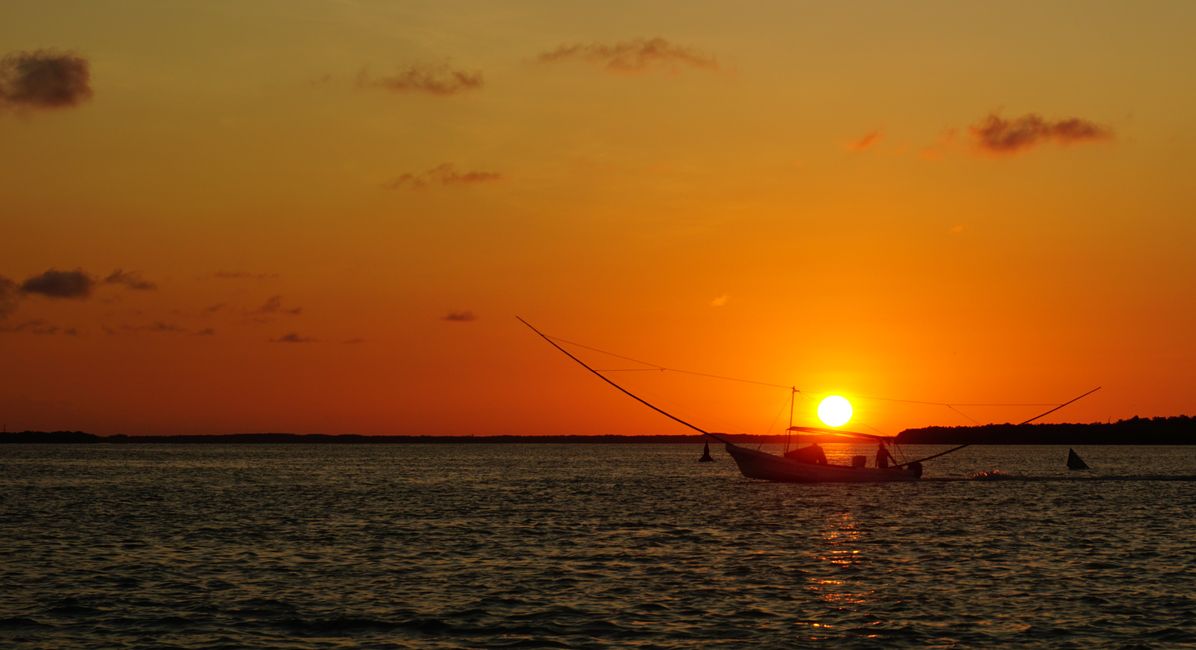
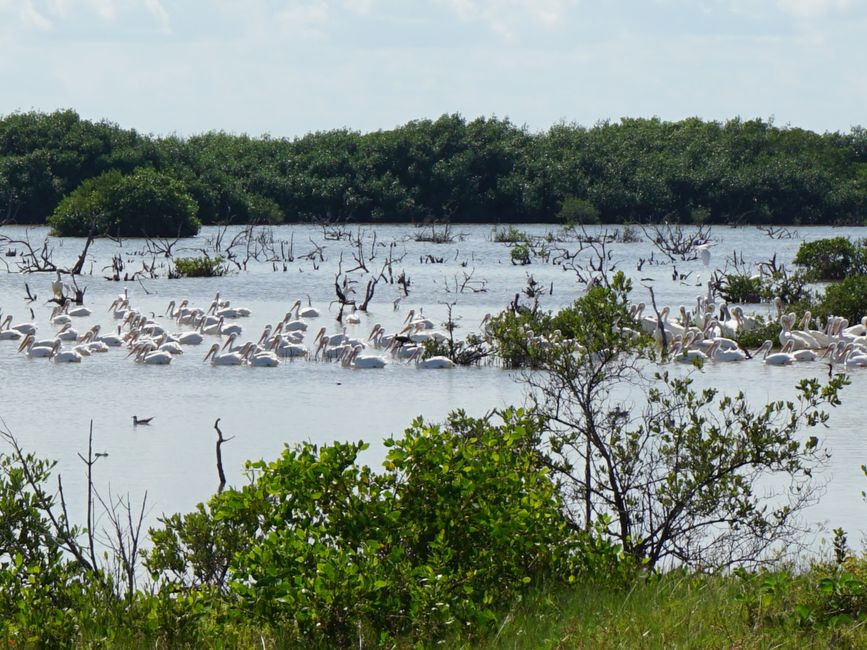
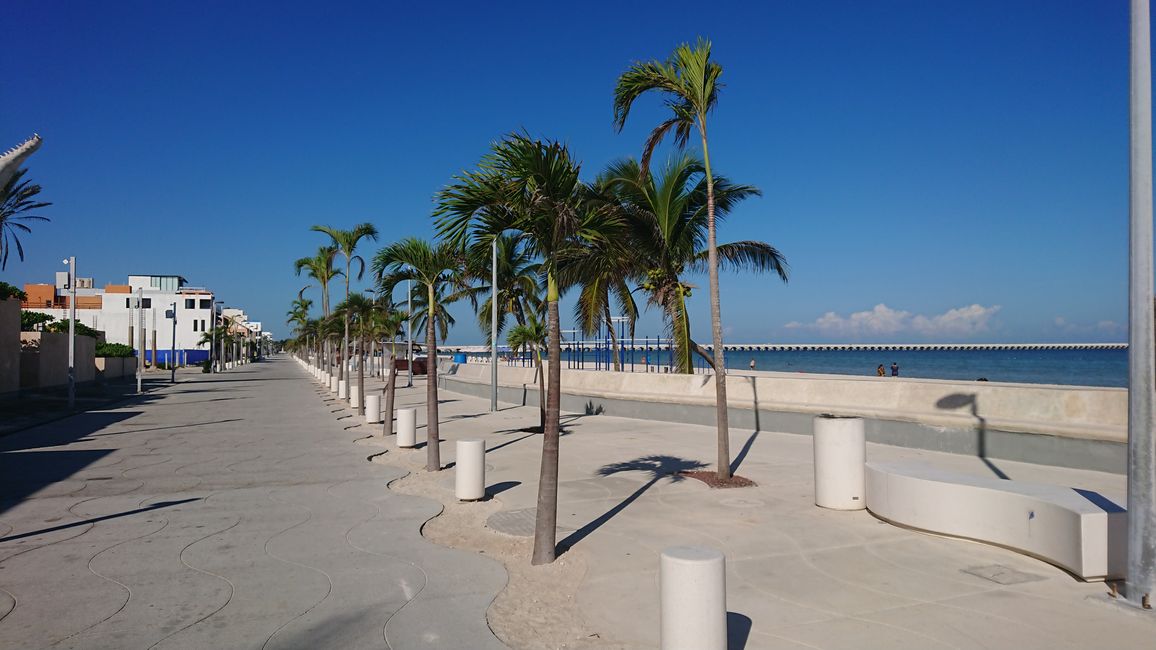
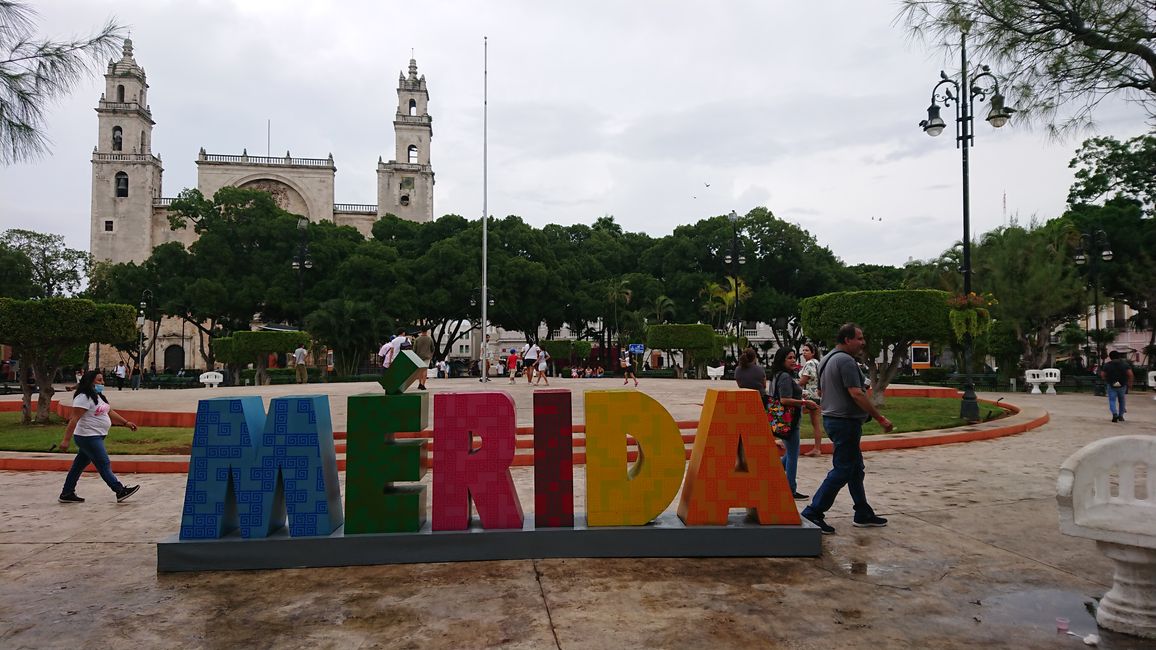
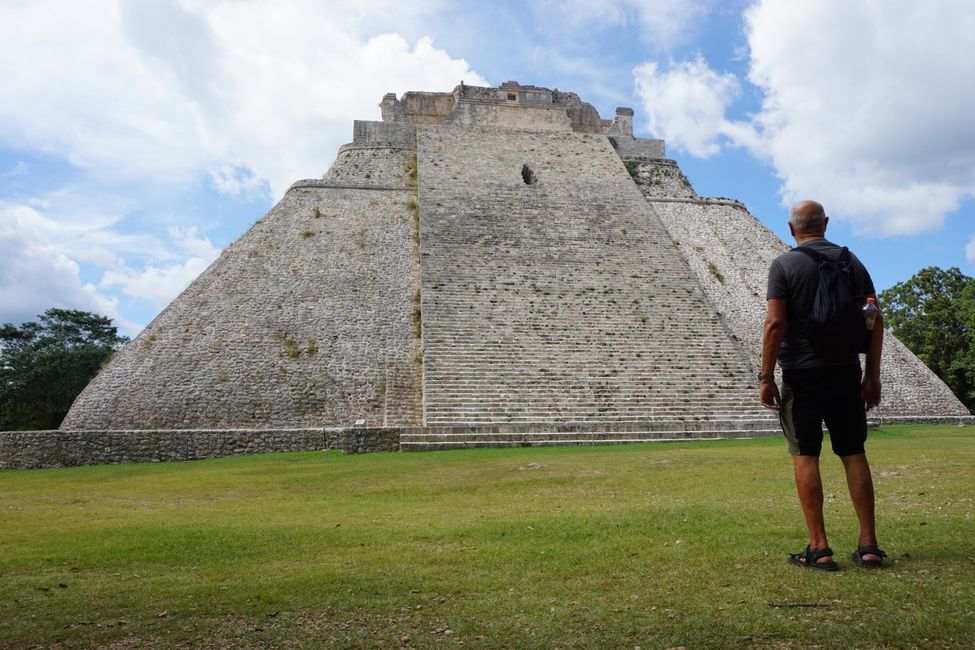
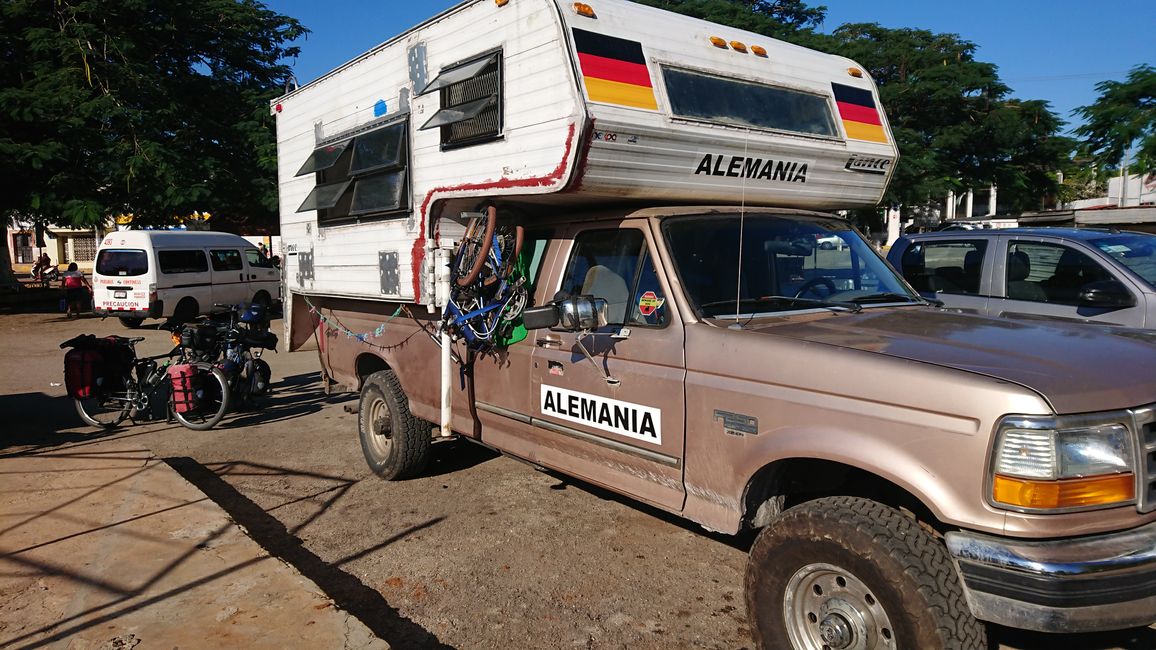
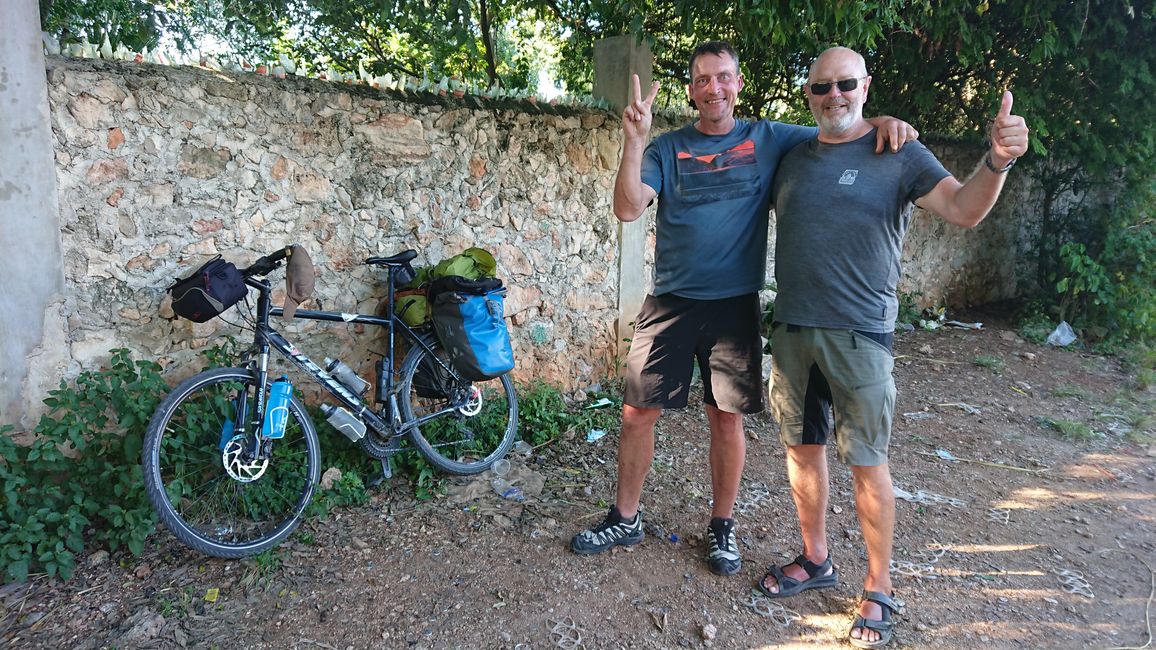
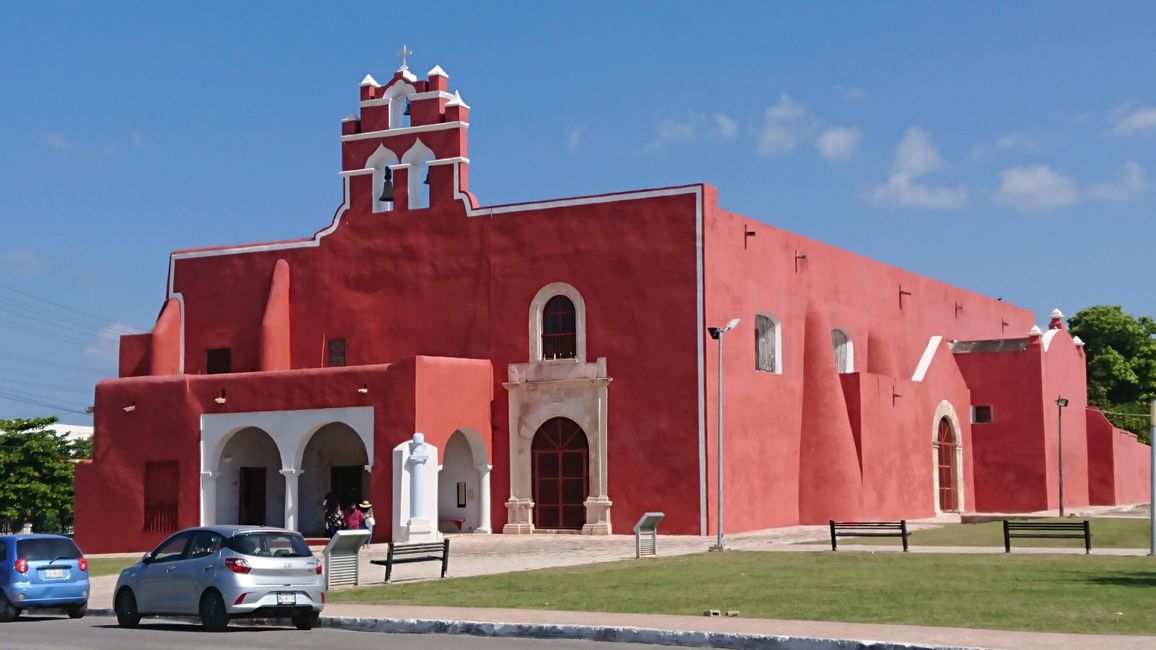
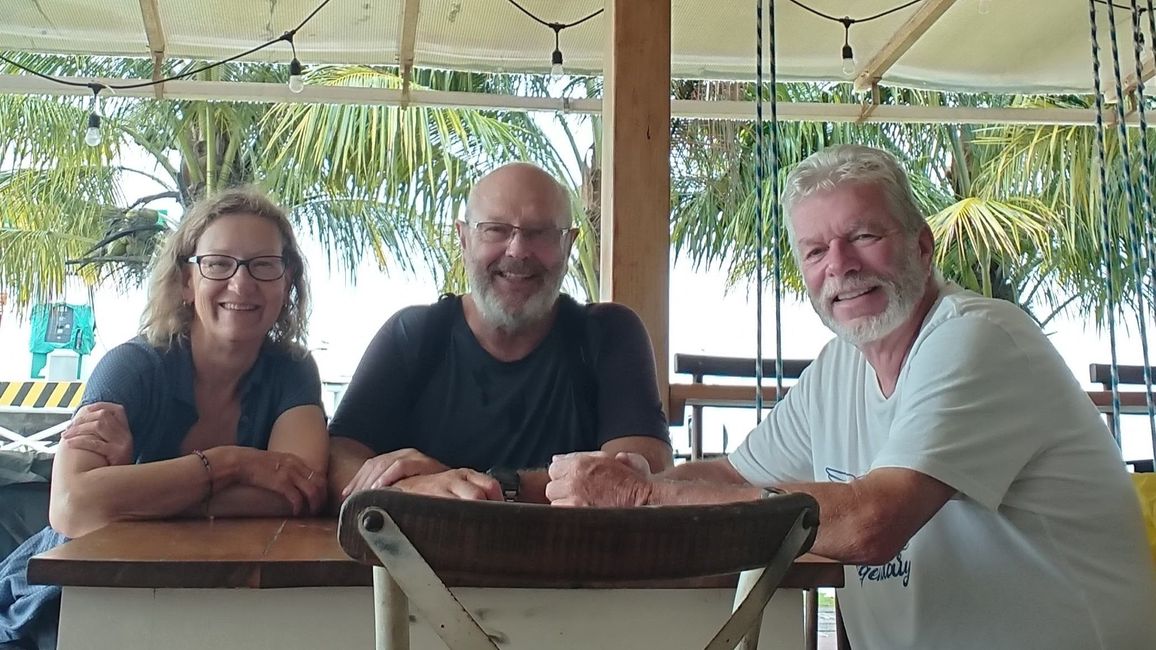
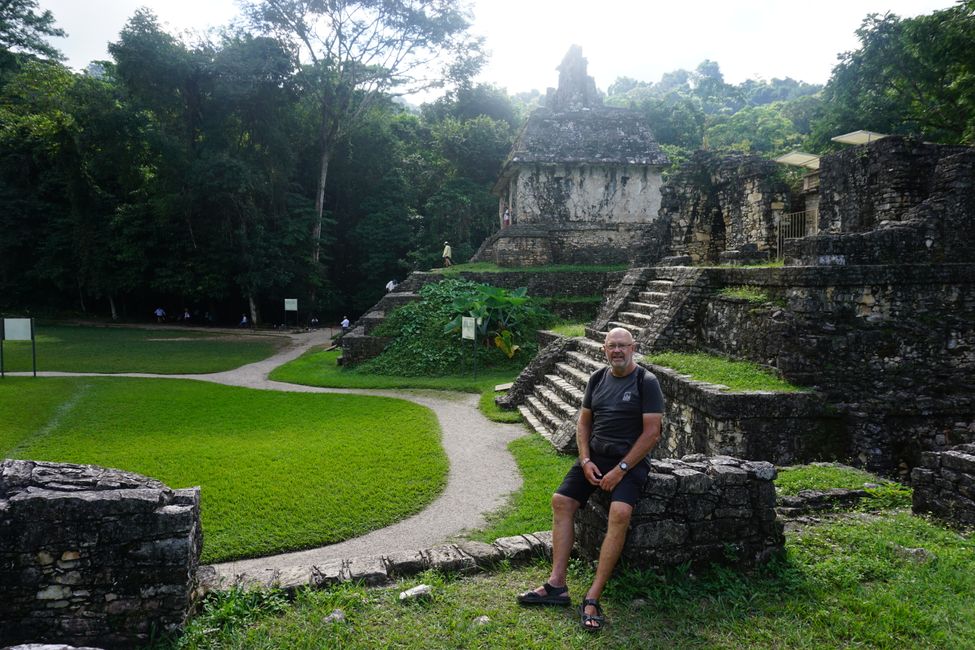
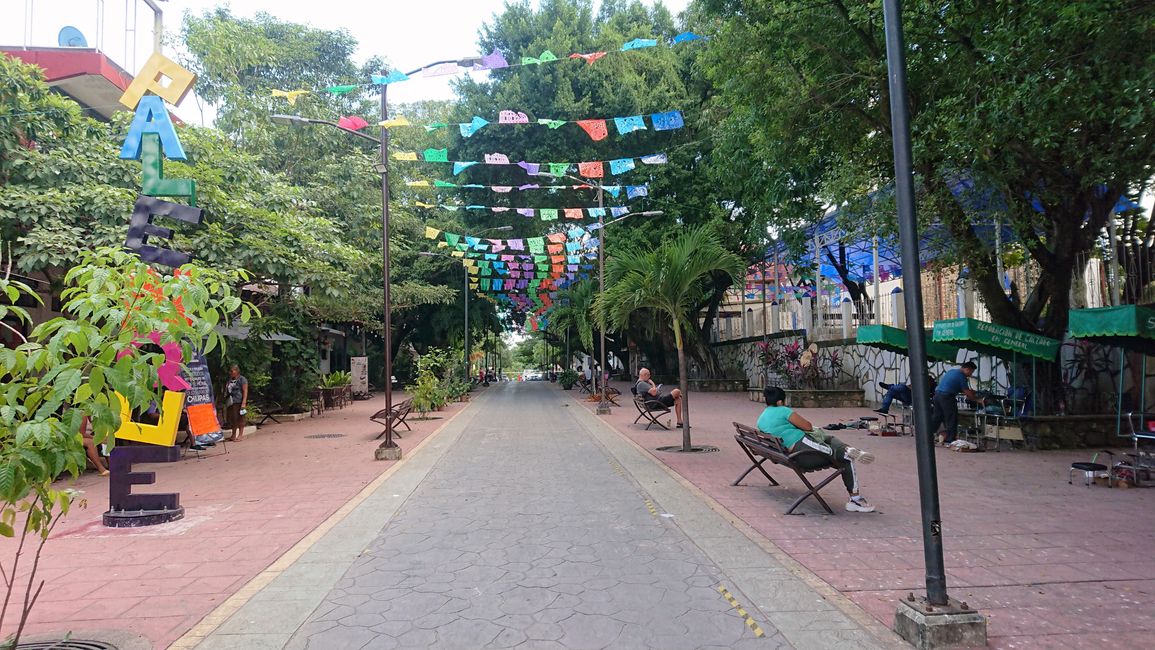
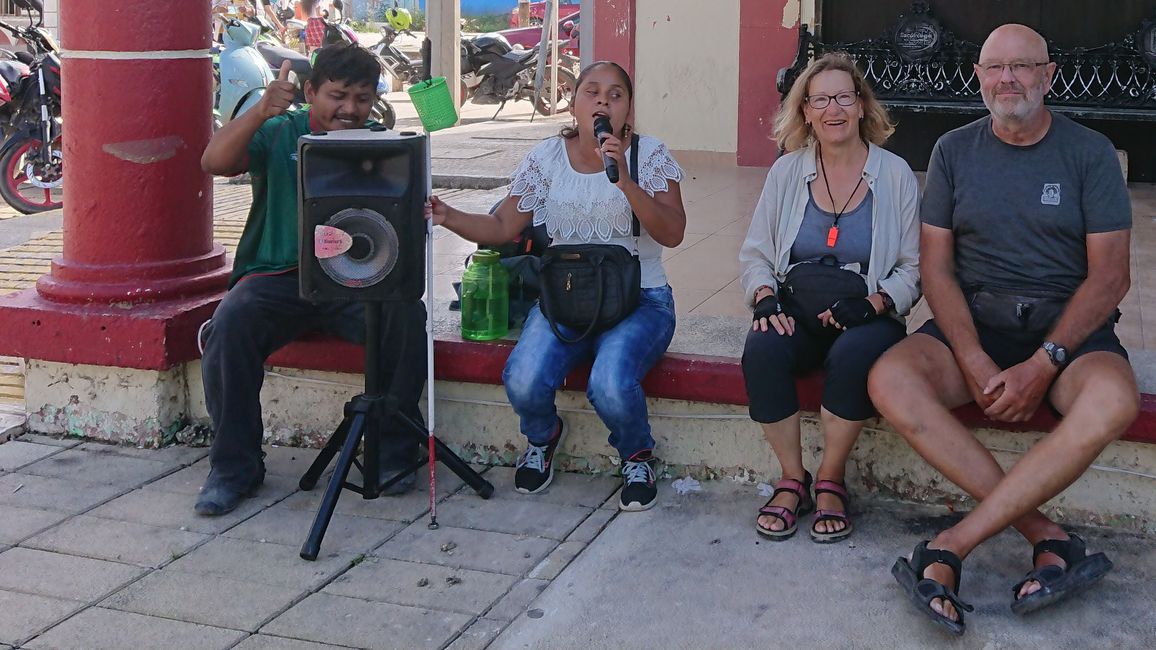
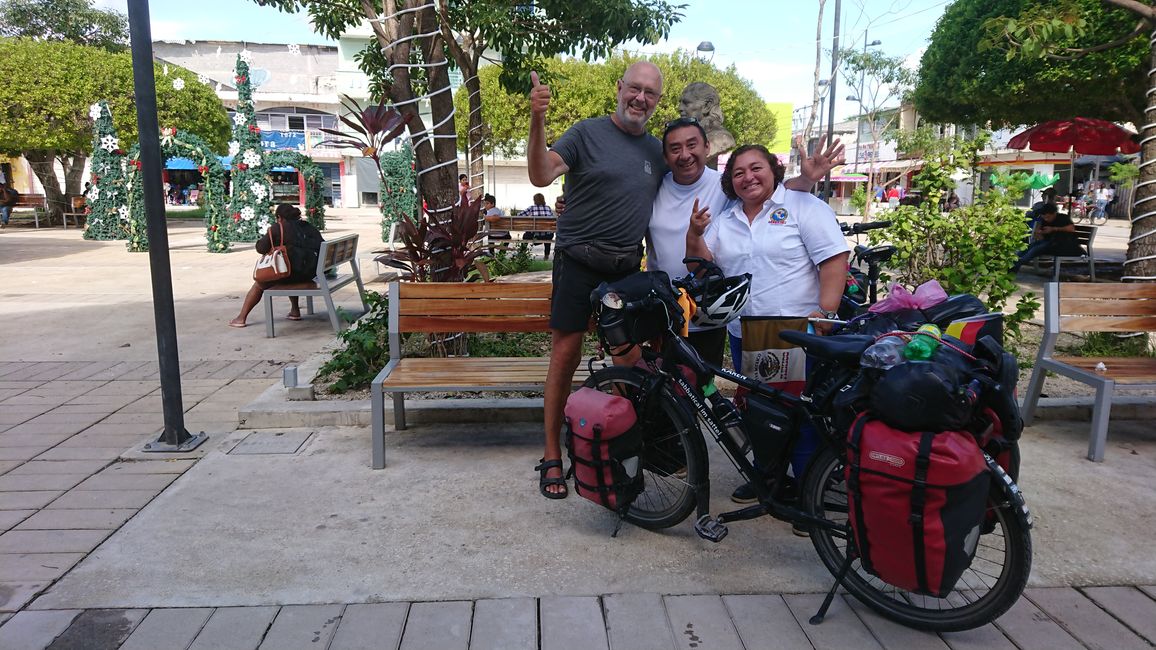
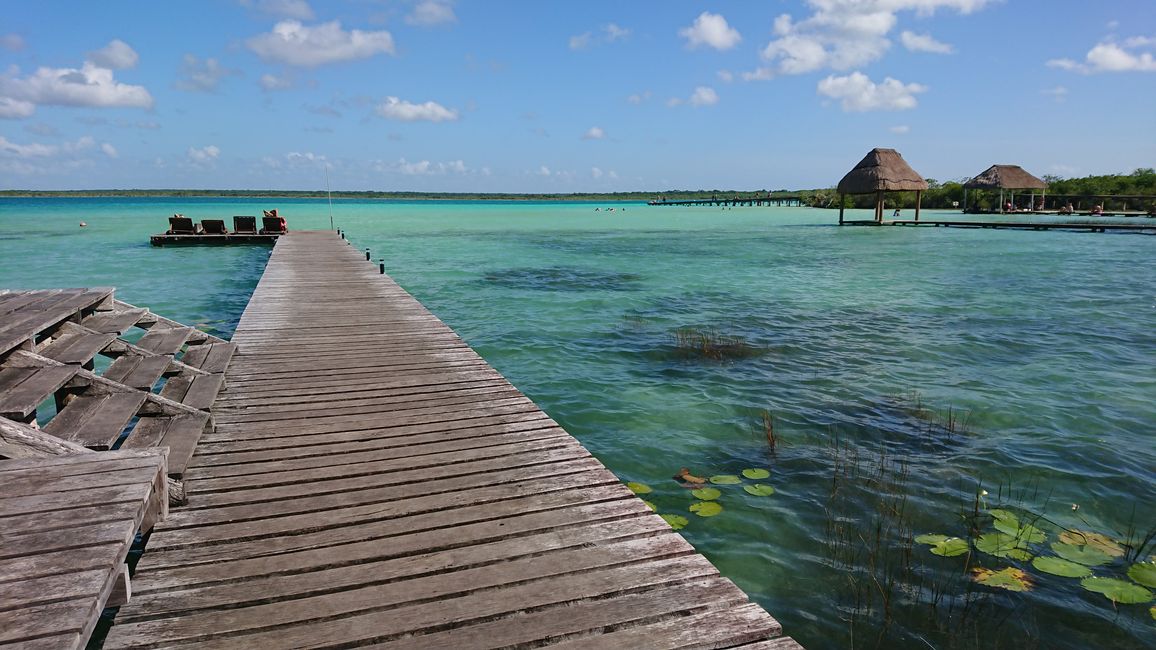
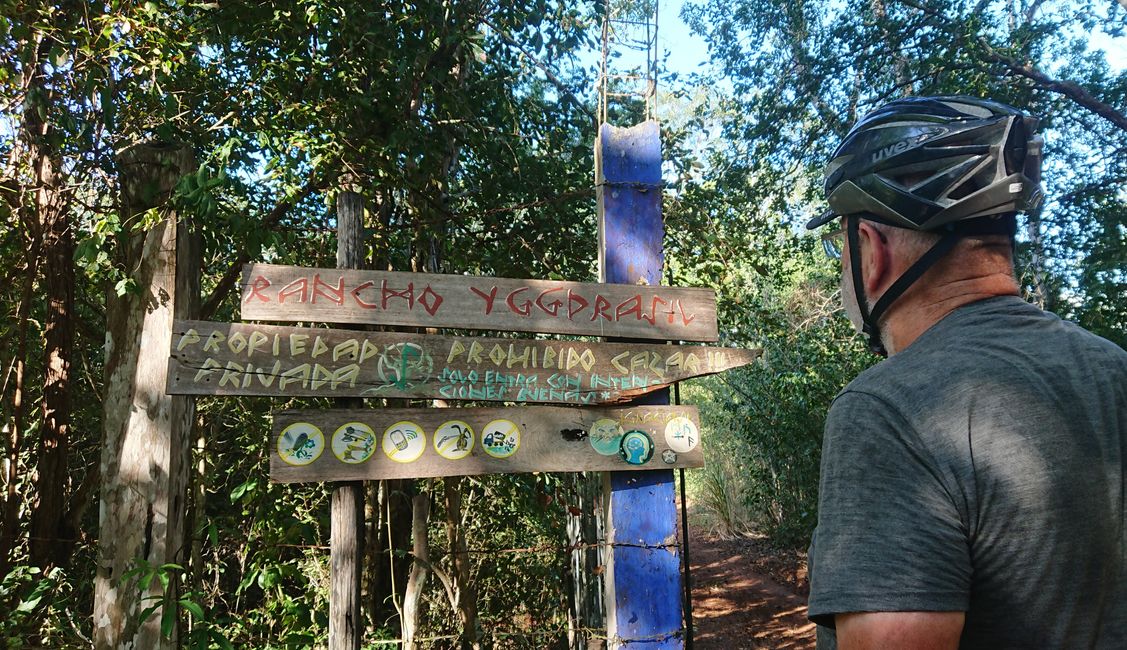
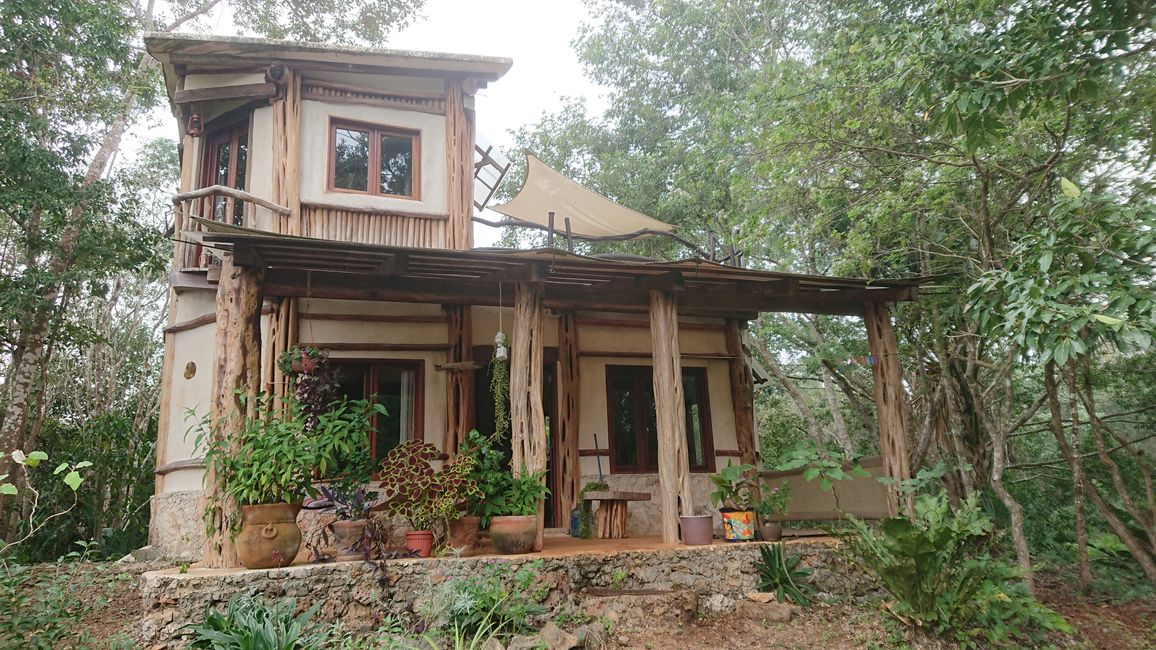
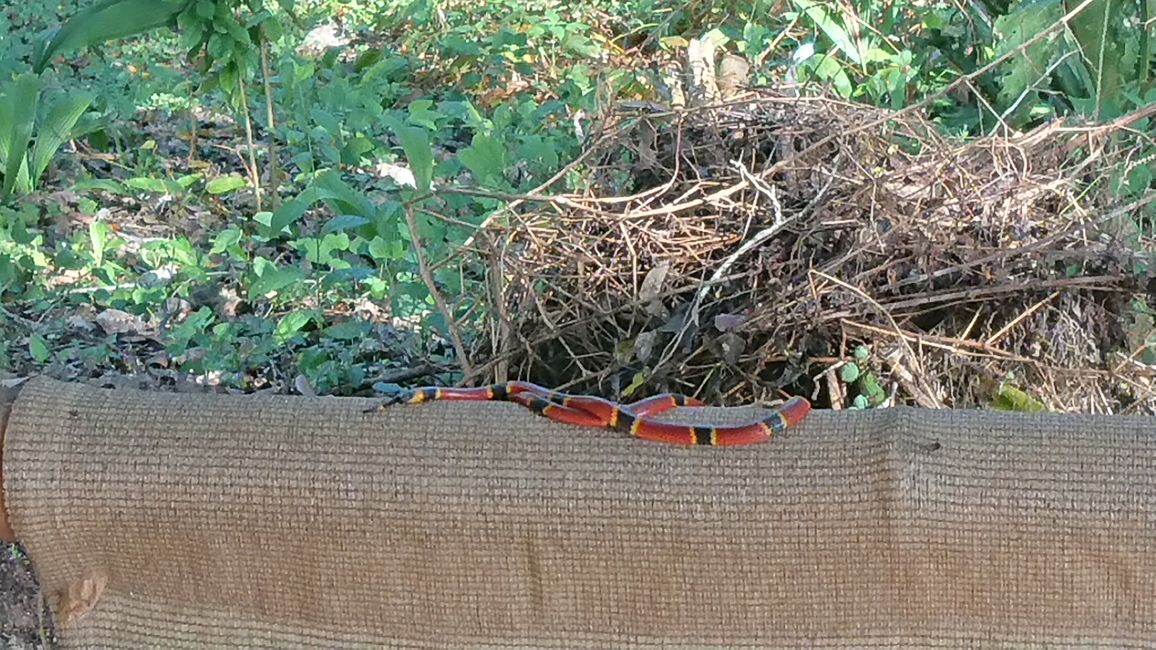
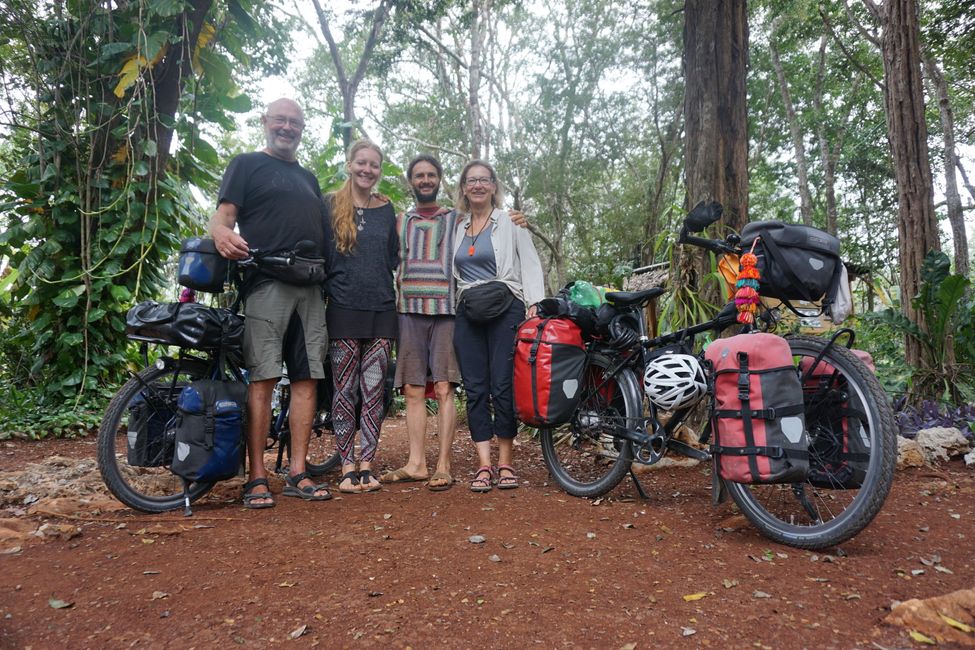
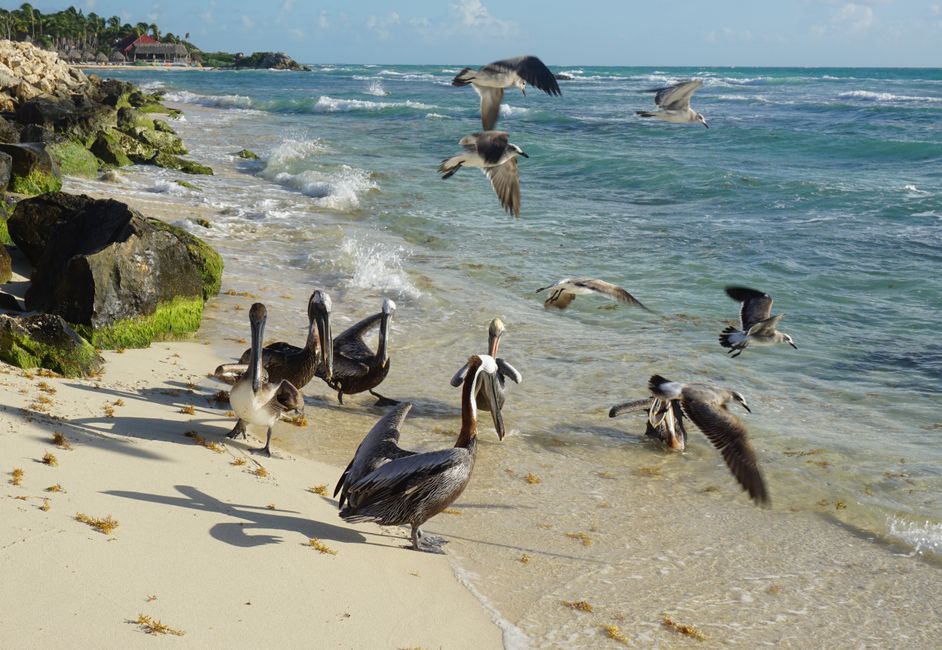
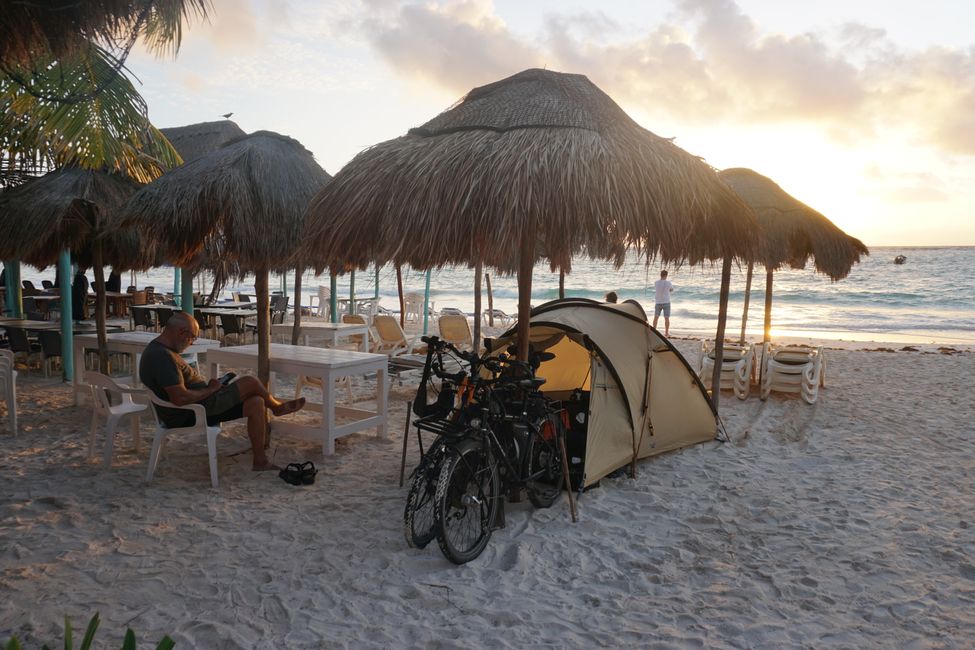
समाचार पत्रिका के लिए सदस्यता लें
Mexico creates us. Jet lag, heat, downpour, broken sidewalks, dirt. Food that doesn't get us. Clean apartment, nice landlords, flowers, smiling faces. We are rich. We are time millionaires. We have the privilege of slowly getting used to the completely different world that Boeing has catapulted us into.
We live in the middle of authentic Cancún. The hotel zone is far away. On the third day we cycle in Mexico for the first time. How relieved we were at the airport. The entry stamp quickly flew into the passports. Our belongings arrived with us. A drug-sniffing dog listlessly sniffed my pants. Welcome to Mexico! And now we're enthusiastically heading to the Caribbean beach. The roads are getting better. Even a bike path. We approach the many hotels. They separate us from the water. Finally a gap. We are on the crowded local beach. The water is as warm as the air. And somehow not clean. We'll try a cenote in the next few days. Our landlords rave about it.
On the fifth day we finally take the wide tires on the jungle track heading west. The navigation system guides us along adventurous paths, partly through construction rubble, from Cancún to the main road 180. Here there is smooth asphalt and a wide shoulder. It's unbearably hot. At least for me. Werner copes better with the humid heat. I struggle to stay in the saddle until midday. Then my body accepts the conditions: heat, no shade, burning eyes from sweat, thirst. Tropical rain falls on us, there is thunder and lightning strikes not far from us. We can only continue cycling after an hour. In the early afternoon, after almost 50 km, we reach the small town of Leona Vicario. We get a decent room in the hotel. Toilet seats are not standard. The young man at the reception speaks Spanish and the Mayan language. He shows us the WiFi code, written on an old tile. The place is full of life. Bicycle and moped taxis, cars, dogs, cats, chickens and the indigenous residents with their many children share the street. Completely different than in Cancún. For us it is unusual and incomprehensible that (plastic) garbage is piling up on the side of the road and in front of the houses. The church is open. It was beautifully designed using simple means. Well-kept houses alternate with corrugated iron shacks on dirty lots. There are public toilets and showers at Parque Central. For everyone who doesn't have a bathroom at home. There are probably many.
The well-paved track leads through the jungle, punctuated by indigenous villages. Even here you can find SIM cards in small shops. Like us, almost everyone seems to own a cell phone. Many children look at us in shock, then smile shyly. Is this the first time you've seen such a tall man and a blonde woman? In contrast to us, the descendants of the Mayans are very small.
Before Valladolid we swim in a cenote for the first time. A long staircase leads down to the karst cave filled with fresh water. Some light comes through a small opening from above, the water sparkles blue and green. Light refracts on the rock walls. I stand in awe on the jetty before sliding into the crystal clear water. Valladolid, a larger city, is good for us after Mayan villages and jungle tracks. Our hostel is a meeting point for travelers from all over the world. We enjoy the architecture of the colonial buildings and stroll through the alleys. A Colectivobus takes us to the Mayan ruins in Ek Balam. Werner climbs the great pyramid and enjoys the brilliant view over the jungle. I can only manage a few of the steep steps. How happy I am to be able to walk and cycle well again after breaking my ankle. Going up and down stairs doesn't work so well. I'm content with Werner's pictures.
Rio Lagartos is our next destination. According to Google Maps, there should be a campsite there. On the way there we meet the touring cyclist Andy from the USA. He has been cycling around the world for ten years. We arrange to go camping together. But disillusionment quickly comes. No toilet, no shower, no drinking water. Just a small lagoon with two crocodiles. And even Andy, who is well versed, doesn't set up his tent here. It becomes clear to us: campsites as we know them do not exist. We're looking for a room. There is also a large lagoon in front of Rio Lagartos. A fisherman takes us to the mangroves. We spot eagles, frigate birds and an ibis. A crocodile curiously circles the small boat. Flamingos strut through the shallow lagoon. Too bad we can't stop time.
Coastal Road 27 on the Gulf of Mexico runs partly through lagoons. Countless pelicans frolic in the shallow water. Sometimes there are signs warning about crocodiles. I'm in a bad mood. Unfounded? No idea. In any case, no giant reptile crawls out of the nearby mangroves. Finally, in Progreso there is the picture-perfect beach. White sand, palm trees, waves, free of trash. Pelicans plunge into the water and emerge with a fish in their beak. The sun sets glowing red. The weather report says a hurricane is heading towards the coast. Our landlord is panicking. We'll stay another day just to be on the safe side. The hurricane is downgraded to a tropical storm and changes direction. Relieved, but also a little wistful, we leave the coast and roll along the wide highway to Mérida. Racing cyclists with support vehicles whiz past us greeting us. Bicycle taxis are coming towards us in our lane. Everything that has wheels uses the smooth asphalt strip.
Merida is the capital of the state of Yucatán. A vibrant metropolis. We meet a touring cyclist from Spain. With a machete on the handlebars, he feels safer in the urban and natural jungle. We drive to Muna to visit the Mayan ruins of Uxmal. The facility is much larger than expected. The great pyramid rises out of the jungle, visible from far away. The palace complex with stone mosaics is impressive. We sit on the historical stones and trace the past. How many people lived here? What were sacrificial stones used for? Were people sacrificed? Back in Muna we spot a motorhome with a German flag. Toni and Andy started their trip around the world as touring cyclists. When a new baby was announced, they didn't fly home in a panic, but rather switched gears without further ado: from a nylon villa to a camper. The little one, just one year old, was born in Costa Rica.
We keep cranking and are soon in the state of Campeche and the capital of the same name. On the way there we meet Dominik from Bautzen in a village. This is his fifth time in Mexico. Three times as backpackers, the second time by bike. Together we wait in the shade for bearable temperatures. The village shop only sells a few bottles of cola, luckily chilled. The shelves almost empty. The houses are dilapidated. The properties are dirty. The asphalt is full of holes. The cars rusted. Hopefully chickens and turkeys ensure that no one goes hungry. Dominik knows that anyone who doesn't have a family is in a bad situation in Mexico and sometimes goes hungry. In Campeche we reach the sea again and enjoy the unobstructed view. The center has been impressively restored and is a UNESCO World Heritage Site. However, we prefer to wander through the neighborhoods away from the center. A man points us to a church. The first Catholic service after the arrival of the Spanish was celebrated here in 1517 and the church was completed in 1546. The conquest and evangelization of the entire Yucatán Peninsula began here.
The main road leads along the coast, occasionally into the hinterland. Michel from Canada crosses our path. As a pensioner, he travels around Mexico on a motor scooter. After Ciudad del Carmen we reach Tabasco. The Guardia National stops us just before the border. A woman checks our passports. In no time we are surrounded by heavily armed soldiers. What does that mean? The friendly men are only interested in our bikes and give us the thumbs up. In the first town in the state of Tabasco, Frontera, celebrations for Revolution Day take place. School classes show off their skills, rancheros ride through the city, bomberos build a human tower. The mood is exuberant. The next day we want to continue, but the rainy season returns. One tropical storm follows the next. And who is also stuck in Frontera? Michel from Canada. What could be better than exchanging travel stories? Four days later we can move on. The water is knee-high in the locals' corrugated iron huts. Sleeping in hammocks doesn't just make sense outside. We drive to Villahermosa, the capital of Tabasco. In the middle is a large lagoon. There is definitely a bathing beach. But we rub our eyes. At least ten crocodiles are dozing on one platform.
Our next destination is Palenque in the state of Chiapas. On the way there we collect the first meters of altitude that we notice in our legs. Palenque, recognized as a Pueblo Mágico, is a place worth seeing. The archaeological site in the middle of the lowland jungle is a tourist magnet. Only a fraction of the former Mayan metropolis of Palenque, which is a UNESCO World Heritage Site, has been uncovered. Some temples are still being reconstructed, others we can climb and visit. A path leads directly into the jungle. The trees are taller than in the north. Little monkeys do gymnastics high above us. They do their big business. Man, that was close. A good heap crashes to the ground right next to Werner's foot. Howler monkeys can be heard, but they remain hidden in the thicket. We leave Palenque via a hilly side road. Little traffic, always ranches. Lots of holes in the asphalt and countless speed bumps mean we can only make slow progress. Behind Emiliano Zapata we reach the main road 186, which mostly runs through the jungle. Green on the left, green on the right. No variety.
But then a familiar sound. And this time the jungle inhabitants show themselves. We watch with fascination how howler monkeys move from tree to tree. We continue winding through the green alley. Suddenly a car stops in front of us. Oh cheek, is it getting tricky now? A young couple gets out. "We are also from Germany and have lived here for over six years." How relieved we are that they don't want to rob us and that the flag on the bike has revealed our origins. Markus and Monique live on their ranch Yggdrasil in the jungle, 500 km away towards Cancún. “Come visit us,” they ask us. Why not, since we're heading back to Cancún. Before we decide to visit the ranch, we still have a few hundred kilometers ahead of us, with steep climbs and descents. The next day we reach Escárcega, a larger city. We head for Plaza Central and sit down in front of the town hall. Mexicans love music. We enjoy the singing of a blind singer. People always give us a friendly wave from the town hall. We hear English. The flag, exactly. Suddenly a woman and a man come straight towards us from the town hall, shake our hands and greet us exuberantly as guests of their city. Was it the mayor? Or the mayor? No idea. They take photos of us with our bikes. At this reception we decide to have a day of rest. The next day I look curiously into the town hall and run straight into the arms of the nice man from the day before. He takes me to the balcony and calls a member of staff who speaks English. And with a view of the beautiful park, I tell our story, which will be translated shortly.
On the way to Chetumal, the capital of Quintana Roo, Adrian from France meets us. He came across the Atlantic on a sailing ship and wants to cycle to Peru. In Chetumal we are finally back on the water, although not yet on the Caribbean beach. Our next stop is Bacalar on a large lagoon. Hotel after hotel, tourists from all over the world stroll through the town. What a contrast to the isolation in the jungle. We find a hostel and set up our tent. It's just a few steps to the water. The lagoon impresses with every imaginable shade of blue and green. Don't forget turquoise. What a play of colors. Here we decide to visit Markus and Monique at their ranch. They send directions, there is no exact address. We deviate a good 100 km from the direct route to Cancún. Finally we go through small villages. A moped overtakes us. Do we want to go to Rancho Alemania? Sure, where do German cyclists want to go at the end of the world? The nice guy shows us the entrance to the ranch. Monique and Markus consciously live without the internet or telephone. The nearest larger city is 20 km away, where they occasionally use the achievements of civilization. Markus has excellent knowledge of the local nature and grows many plants. Monique conjures up delicious vegetarian food from her own harvest. The two are largely self-sufficient. Monique designed the houses and furnished them comfortably. Seven cats, four chickens and a sheep feel at home here. We observe wild turkeys and countless birds. A small snake visits us in the guest house. We find a larger specimen on the terrace. The men harvest sweet potatoes together, which then end up in the cooking pot. The alternative lifestyle of the two is impressive. No time-killing devices disturb our conversations. We want to move on before Christmas, but our hosts ask us to stay. Monique bakes stollen and cooks a delicious meal on Christmas Eve. Everything in the open-air kitchen. We say goodbye somewhat wistfully. We pedal thoughtfully. The detour to this peaceful spot somewhere was worth it. We will never forget Monique's cooking skills and Markus' enthusiasm for nature.
After a few days we reach the Caribbean coast. We are standing on the beach. Seagulls, frigate birds and pelicans put on an air show right before our noses. In fact, we can set up our tent on the beach one more night. And then the circle closes. We are back in Cancun. After eleven weeks and 2600 km in the saddle of a bike around the Yucatán Peninsula. We gained valuable insights and memories, they won't be the last in Mexico.
What excites us most when we’re on the road? We see beautiful landscapes and fantastic places. But the encounters with people are always the most impressive. For example, we will still remember the nice employees at Escárcega City Hall vividly in 20 years.
Even if it was love at second sight, Mexico captivated us. There is still a lot for us to discover. We don't have to leave this colorful country until April. And that's why we're reporting again from a completely different region. It remains exciting. Promised.
समाचार पत्रिका के लिए सदस्यता लें
उत्तर
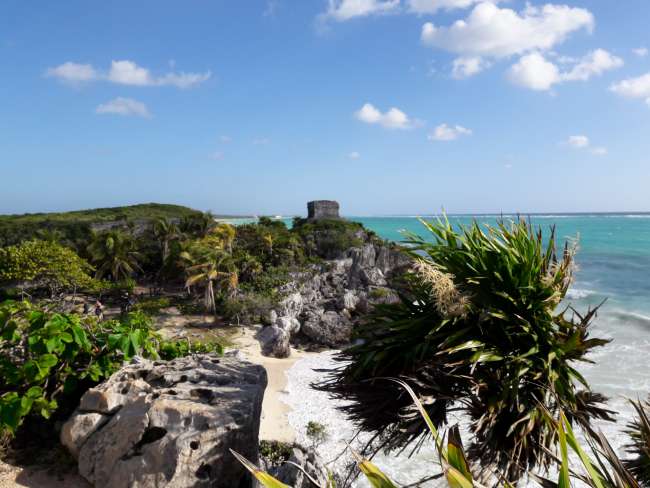
यात्रा रिपोर्ट मेक्सिको

